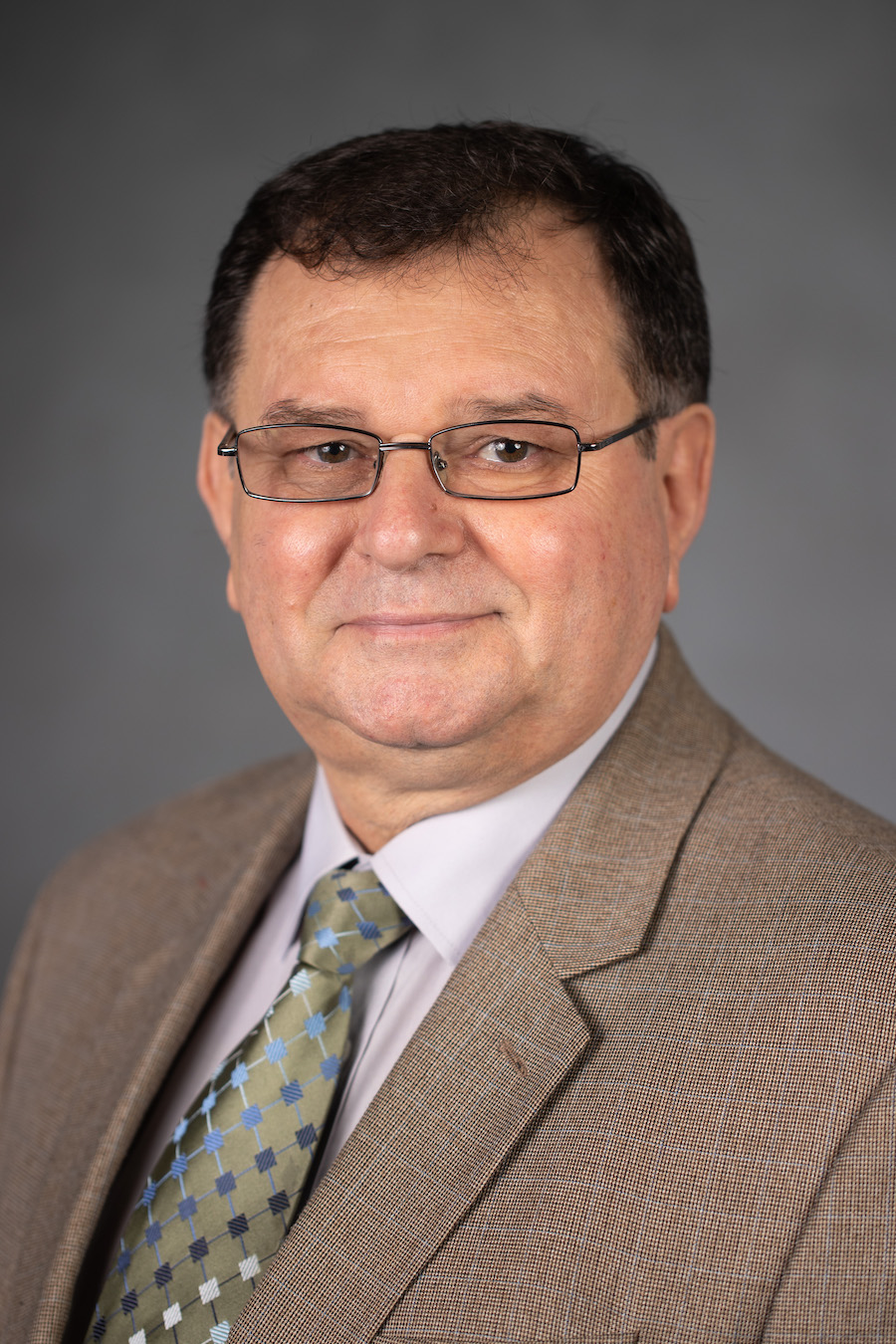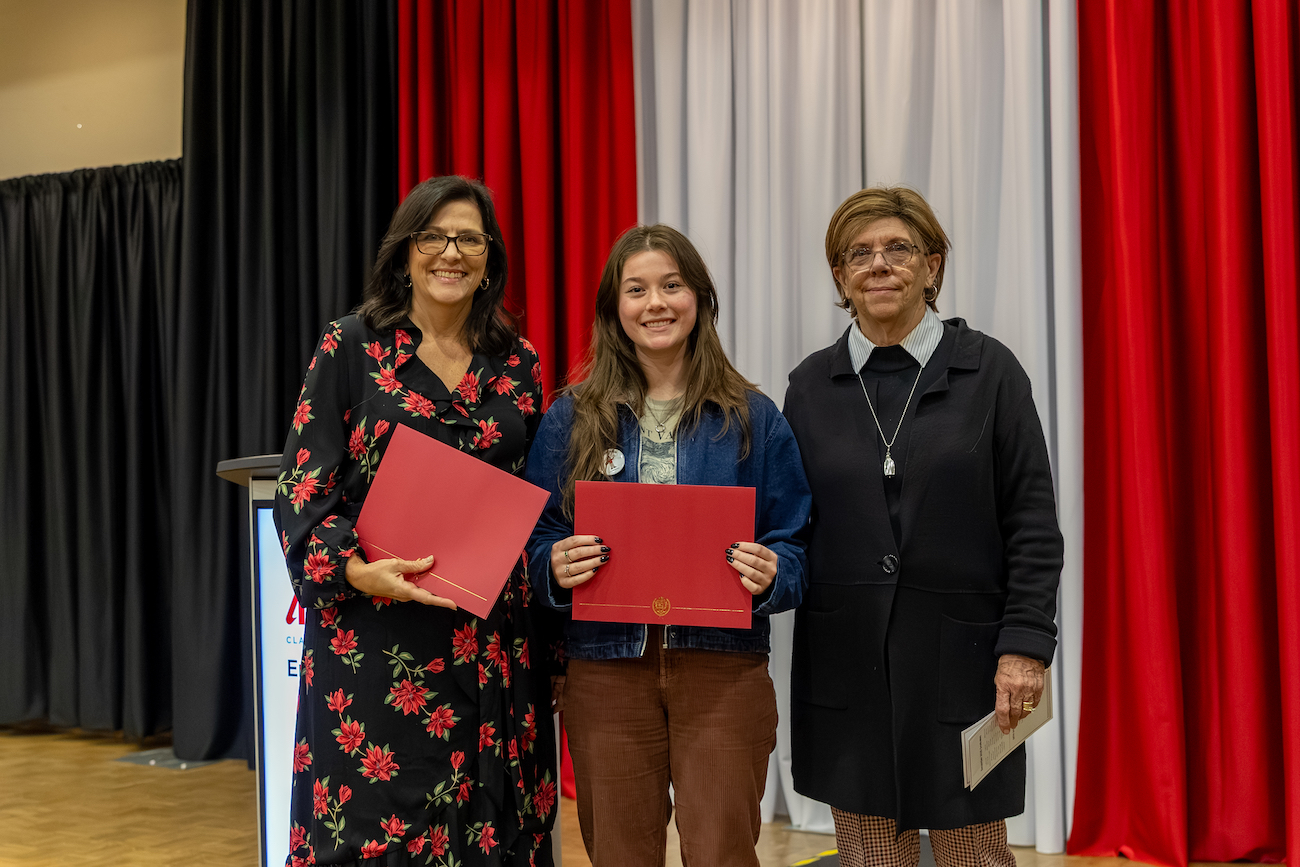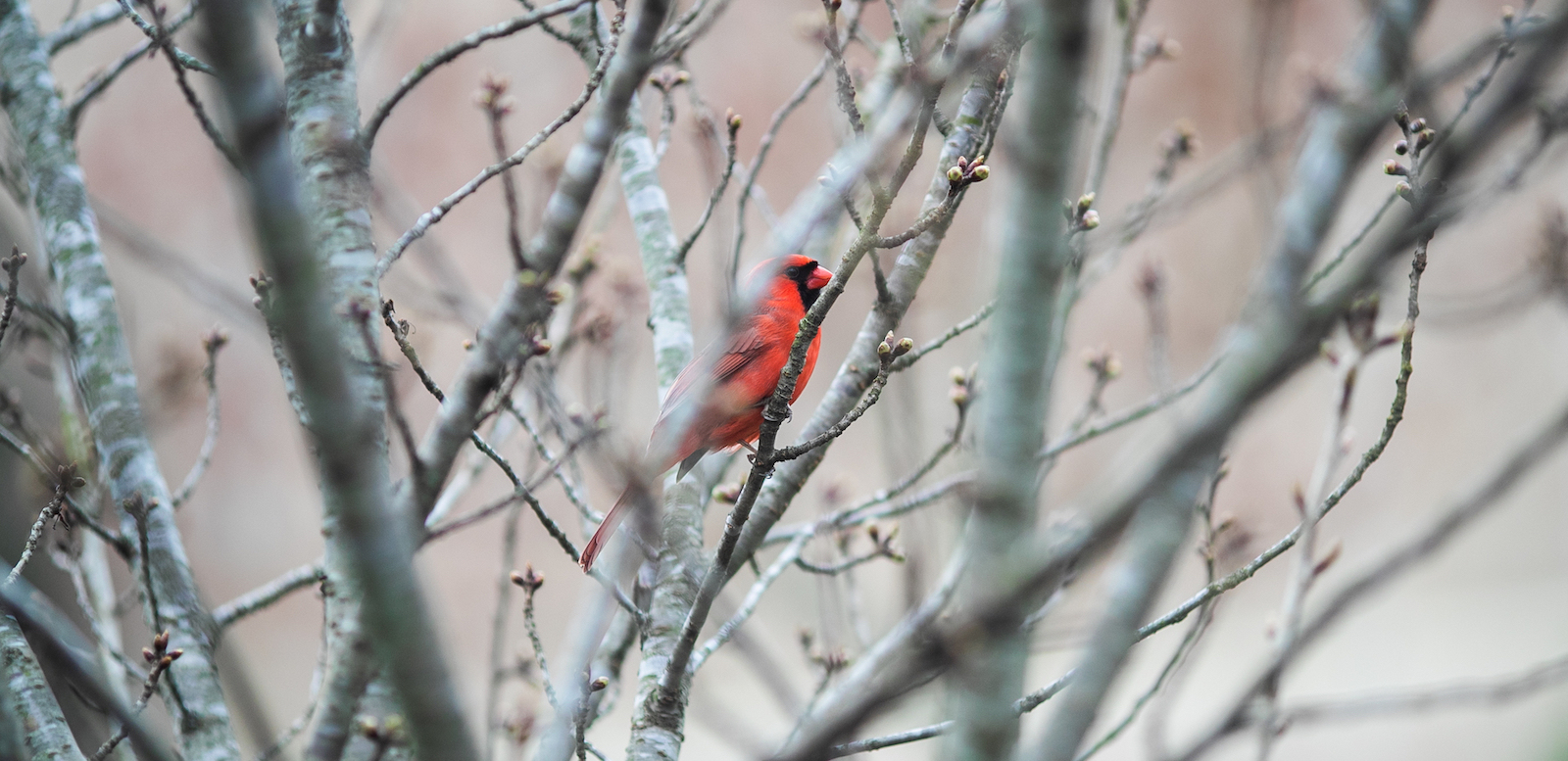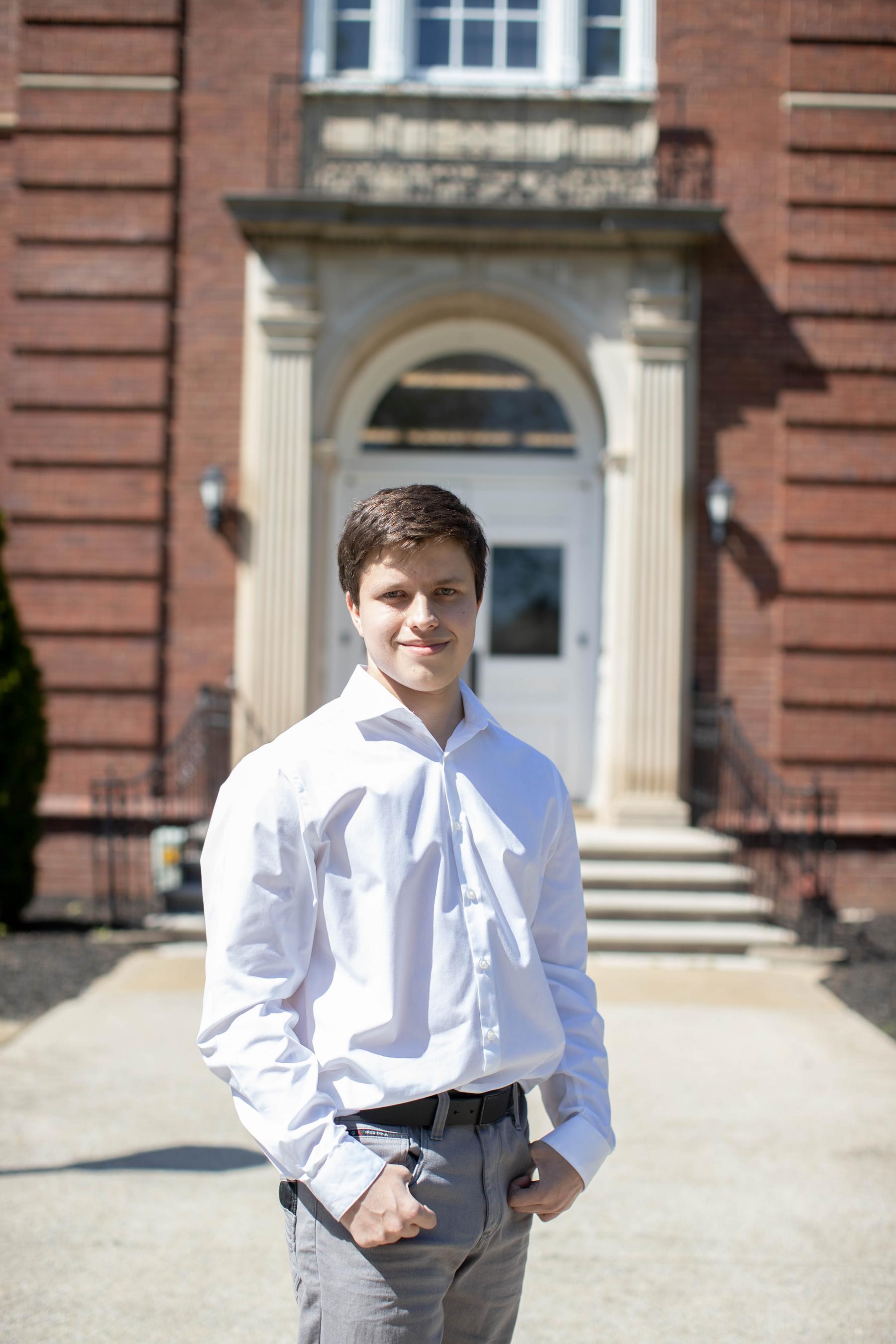Austin Peay student receives prestigious Barry Goldwater Scholarship
(Posted on Wednesday, April 12, 2023)
Yuriy Holovchak, a sophomore at Austin Peay State University, has won the prestigious Barry Goldwater Scholarship, becoming the first student at the university to receive the honor since 2013.
Holovchak, who is double majoring in engineering physics and computer science, was one of just 410 students nationwide to receive the award, out of an estimated pool of over 5,000 college sophomores and juniors.
Holovchak wants to pursue a career in materials research, and his goal is to earn a doctorate in physics. He hopes to conduct research in quantum information science and materials development at national labs and aspires to create a company dealing with quantum computing technology.
Holovchak’s win marks the fifth time an Austin Peay student has won the award. Previous recipients include Mason Yost and Drew Kerr in 2012, and Chris Hayes and Krissy Knight in 2013. Samuel Cupp, a physics student, also received an honorable mention in 2013.
“Because I got the scholarship, I believe that lots of windows opened up for me, especially in graduate school,” Holovchak said. “But right now, I think the Goldwater Scholarship is something that will drive me to try and get more scholarships in the future.”
Holovchak’s years at Austin Peay are important to him. His primary goal in college is to improve his research skills to help propel him to higher-level colleges when he pursues his doctorate in physics.
“I’m trying to get myself to be better at research as a whole, to be able to create different experimental setups to measure the stuff I want and develop new materials and devices,” he said. “As long as I’m able to do that, I think I’ll be successful in my undergraduate career. I’m hoping I can continue this into my professional career.”
Mentors play key roles

Holovchak’s mentor, Dr. Andriy Kovalskiy, introduced him to materials research, which he found to be fun and paramount to his plans. He’s particularly focused on materials research - especially applications in creating more efficient light sensors and photovoltaic cells, which are used in solar panels.
“I feel confident while doing research with him,” Holovchak said about Kovalskiy, a professor of physics at Austin Peay.
Holovchak is also interested in neuromorphic computing, which involves materials that can switch between two distinct states quickly and develop metastable states that allow for the creation of configurations like a neuron network that is at the core of the learning process in the human brain.
“Whenever you feed an image into a computer program that has multiple categories of images, for example, it immediately creates a transient path to the correct image category, leading to the desired output,” he said. “I believe that if you research more of these materials, and as you learn more about them, it'll become more and more possible to put them into the perspective of neuromorphic computing.”
Dr. Timothy Winters, director of the Honors Program[BROKEN LINK] at Austin Peay, also played a key role in helping Holovchak, an honors student, through the Goldwater application process.
“We spent a lot of hours working on that application, just sitting in these chairs [in the Honors Commons at Austin Peay] going back and forth,” Winters said. “It was beneficial that I didn't fully understand the research, as it forced him to explain things. Then, we would take some time to think and come up with other words to make it more concise. With all these applications, you’re limited in the number of words and pages you can use, so it required a lot of joint effort to get everything done and check all the necessary boxes.”
Published twice already
Holovchak recently presented the research he did with Dr. Roman Golovchak and Dr. Andriy Kovalskiy – professors in Austin Peay's Department of Physics, Engineering and Astronomy – in Posters at the Capital in February. Their project was titled “Special Glasses for Integrated Photonic and Electronic Platforms.”
The research Holovchak proposed in his Goldwater application is a continuation of that work. He and recent graduate Jarres Plummer researched a new type of amorphous equichalcogenide thin films that simultaneously contain all three chalcogen (sulfur, selenium and tellurium) atoms.
During his research, Holovchak participated in sample preparation, developed experimental setup and measured the temperature dependence of the optical gap and electric resistivity in the chalcogen-rich and antimony-rich equichalcogenide thin films. As a result, a phase-change memory effect, superior photosensitivity and linear decrease in the optical gap with temperature have been discovered in these materials, making them perfect candidates for sensor, solar energy conversion, phase-change memory and telecommunication applications.
Holovchak and Plummer were included as co-authors in two recent peer-reviewed papers with Dr. Golovchak and Kovalskiy: “Broadband Photosensitive Medium Based on Amorphous Equichalcogenides” – published in ACS (American Chemical Society) Applied Electronic Materials; and “Phase-Change Materials Based on Amorphous Equichalcogenides” – published in Scientific Reports (in the Nature Portfolio). Scientific Reports is a highly prestigious peer-reviewed source and the most-cited journal in the world, with more than 696,000 citations in 2021. The publication receives widespread attention in policy documents and the media.
As noted earlier, these research experiences are invaluable to Holovchak’s undergraduate studies. He learned in-lab skills such as preparing optical and electrical setups in a professional environment and how to control the materials he’s performing measurements on.
“The skills of operating modern lab equipment and creating proper setups to obtain required data are the ones I plan on mastering during my undergraduate years at Austin Peay,” he said. “Because of these types of experiences, and the possibility of working closely with each professor at the university, Austin Peay has truly been a blessing to have as the driving force of my undergraduate studies.”
More about the Goldwater Scholarship
The Goldwater Scholarship is the preeminent undergraduate award of its type in the natural sciences, engineering and mathematics fields. The scholarship program honoring Sen. Barry Goldwater was established to foster and encourage outstanding students to pursue research careers in these fields.
Goldwater Scholars have gone on to win a variety of prestigious post-graduate fellowships, including the NSF Graduate Research Fellowship, Rhodes Scholarship, Marshall Scholarship, Churchill Scholarship, Hertz Fellowship, DOE Computation Science Graduate Fellowship and the National Defense Science and Engineering Graduate Fellowship.
News Feed
View All News
Two hours after his interview with the Clarksville Police Department (CPD), Army veteran Dustin Zook had a job offer in hand--a swift result powered by the preparation he built through Austin Peay State University's Military-Affiliated Professionals Program (MAPP).
Read More
Graduating seniors from Austin Peay State University's Eriksson College of Education achieved the program's highest edTPA passing rate and scores since the university adopted the assessment in 2013, positioning these newly licensed teachers to succeed in Tennessee's classrooms.
Read More
Austin Peay State University Middle College students are leading campus-wide bird strike research through the Bird Alliance, documenting window collisions and contributing to ongoing conservation efforts that have significantly reduced bird deaths on campus.
Read More
